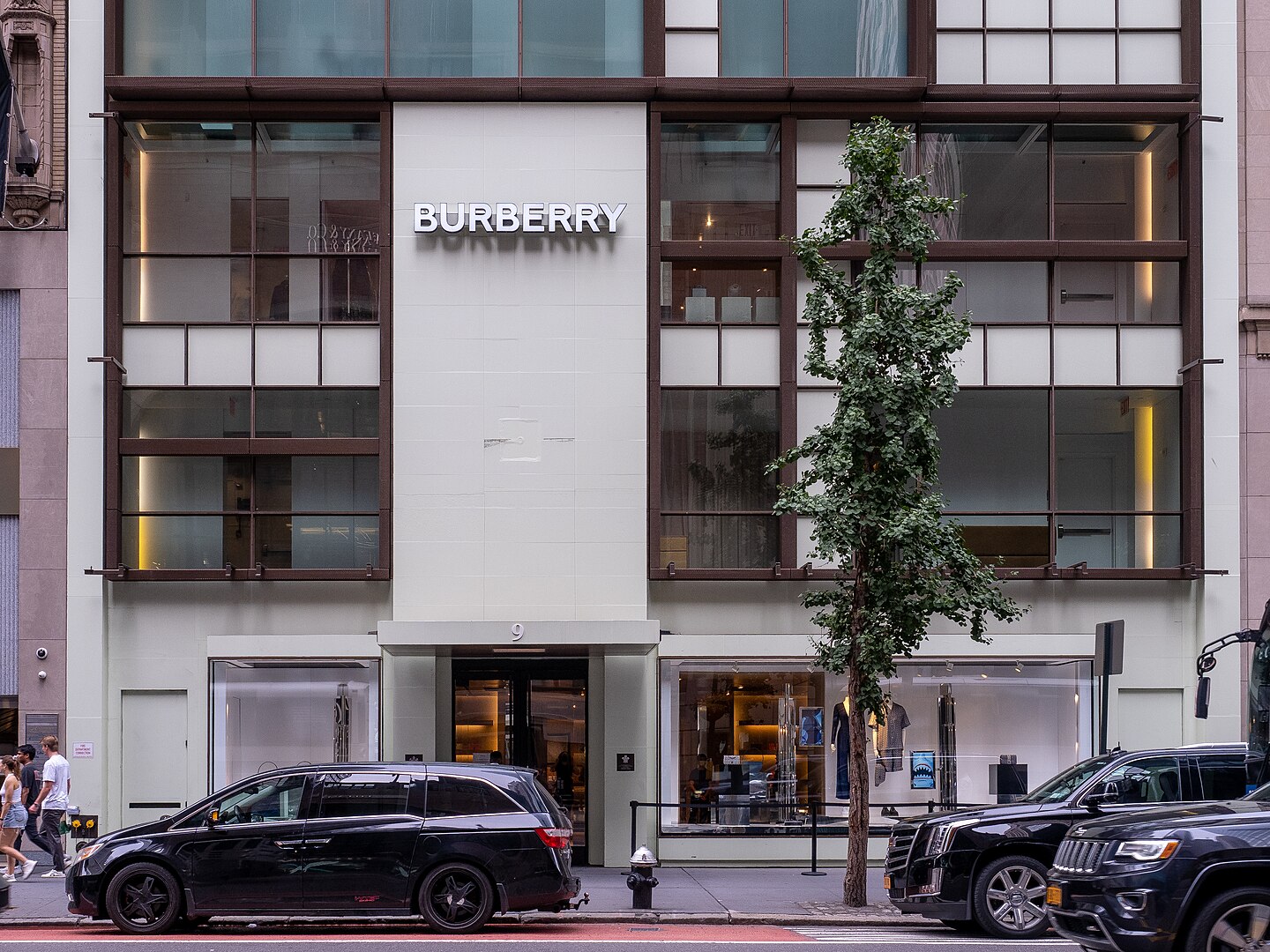 BBC News
BBC NewsBorrowing was £17.4bn last month, the second highest October figure since monthly records began in 1993.

Finito World
Photo by Ajay Suresh: https://flickr.com/photos/ajay_suresh/51396234449/, reproduced under Creative Commons Licence 2.0
When Burberry announced last week that it would cut 1,700 jobs — nearly a fifth of its global workforce — there was a brief murmur of public sympathy, followed, as always, by the sound of indifference settling back in.
But the collapse of a British icon deserves more than a shrug. This is a moment not just for the company, but for Britain’s relationship with luxury — and its place in the global economic imagination.
For more than a century, Burberry has been one of those rare brands that captured both history and possibility: a trench coat that belongs as much to the battlefields of Flanders as to the runways of Milan. Founded in 1856, still manufacturing in Castleford, West Yorkshire, the company is arguably one of the few luxury labels in the world where the phrase “Made in Britain” still means something.
So when its chief executive Joshua Schulman announces a £66 million loss, the scrapping of night shifts at its Yorkshire factory, and a retreat to “core products,” it’s not just an internal failure. It’s an indictment of a nation unsure what it wants to be to the rest of the world.
Schulman’s turnaround plan is textbook: cost-cutting, redundancies, reorientation to “authentic” products like scarves and outerwear. But one can’t help but sense that the real cause lies elsewhere — upstream, in policy, not procurement.
Since the UK ended VAT-free shopping for overseas visitors in 2021, British luxury has been labouring under a quiet disadvantage. Tourists — particularly from China, the Gulf, and the US — now choose Paris or Milan to make their major purchases. We are no longer the shopping capital of Europe. We are the full-price aisle.
The figures are unequivocal. According to the New West End Company, the UK is the only major shopping destination in Europe where tax-free shopping is unavailable. Paris has recovered 109% of its pre-pandemic sales to international visitors. London is at just 64%.
Paul Barnes, CEO of the Association of International Retail, has called this the “tourist tax,” warning that “we are turning away visitors who would otherwise spend here, eat here, shop here, and employ people here.” Retailers from Harrods to Selfridges have signed letters urging the Chancellor to reverse the policy.
Even Rishi Sunak, while Chancellor, once hinted at reviewing the policy. Yet the reversal never came. The Treasury insists the system is too costly to reinstate. But what, we might ask, is the cost of irrelevance?
Burberry — like Harrods, like Bicester Village, like thousands of retail jobs on Bond Street and Sloane Street — is being buffeted by this single, self-inflicted policy error. The tourist VAT campaign, led doggedly by our own Julia Carrick OBE, and a chorus of British brands, is not about privilege. It is about competitiveness. And jobs.
It’s also about something more intangible: soft power. Luxury is never just commerce. It is identity made visible. France understands this instinctively. Italy has made an art of it. Britain, in the post-Brexit fog, is dangerously close to forgetting it altogether.
At its best, British luxury speaks to a kind of cultivated restraint: the hand-stitched brogue, the understatement of Savile Row, the longevity of a well-made coat in a rainy country. But when a brand like Burberry suffers, it isn’t the oligarchs who feel it first. It’s the pattern-cutter in Yorkshire, the shop assistant in Knightsbridge, the young graduate who might have designed the next collection.
Luxury, like all creative industries, is part of employability. It fosters taste, innovation, global connection. As our own Finito research often finds, it nurtures the sort of skilled, thoughtful work that allows British culture to resonate abroad. In our rush to become austere, we risk becoming irrelevant.
There is an opportunity here, if the Chancellor is bold enough to seize it. Reinstating tax-free shopping would not just help save Burberry. It would signal that Britain understands its place — not as a fortress of frugality, but as an open, desirable, beautifully made destination.
Schulman, to his credit, sees the value in authenticity. “The continued resilience of our outerwear and scarf categories reaffirms my belief that we have the most opportunity where we have the most authenticity,” he said last week.
Burberry’s best days may still lie ahead, as Schulman insists. But it would be nice if Britain could help make that future happen — rather than quietly laundering away its own advantages, one trench coat at a time.